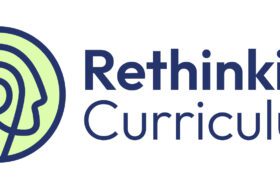The teaching of relationships (and sex) and health education R(S)HE became statutory in all state-funded schools in September 2020. Subsequent guidance from the DfE recommends that this should sit within a wider framework of personal, social, health and economic (PSHE) education. Independent schools have long been expected to teach PSHE education. Very few teachers have received ITT on RSHE/PSHE education and, as schools appoint RSHE/PSHE leaders, there is a significant need for CPD for class teachers and subject leaders in primary, secondary and special settings.
The DfE guidance and training slides focus almost exclusively on knowledge and are therefore not evidence informed and are consequently unlikely to have the desired impact on pupils’ health or staff wellbeing.
In this webinar, John Rees FCCT will provide member colleagues with much needed support and give examples of evidence-informed approaches and will cover:-
- Why has the DfE made R(S)HE statutory?
- What’s the rationale for statutory RSHE?
- How does it contribute to learning and attainment across the curriculum?
- What are some of the things we need to plan for?
- How do we identify staff CPD needs?
- What do we have to teach?
- What is statutory?
- Do we have to teach sex education?
- Do we have to teach about LGBT?
- How do we adapt things to make them relevant for our children?
Resources
- Download presentation
- Non-statutory guidance to schools on character education and development for pupils. Character education framework
- Teaching about relationships, sex and health
- ACAMH webinar: Anxiety; Cues, Clues & Support for Young People in School
- Youth-led mental health initiatives in education
- Health Matters: Preventing STIs
- A Curriculum for positive transformation
- ‘Social and Emotional Aspects of Learning’ (SEAL) has been rolled out nationally to Primary & Secondary schools in the UK
- School inspection handbook
- SMSC Quality Mark
- Teacher excellence at the heart of leadership
- A SCITT model for assessment
- Actioning on research to address the gender-based achievement gap in the Early Years
- Webinar playback: Relationships, Sexuality & Gender for the classroom
- The link between pupil health and wellbeing and attainment
- Promoting positive mental health and wellbeing in Primary Schools
- Literature Review: Evaluating the Impact of PSHE on Students’ Health, Wellbeing and Academic Attainment
- EEF: Teaching and Learning Toolkit
- Statutory guidance: Relationships and sex education (RSE) and health education
- The poor relation: health education in English schools
- A whole-school approach to supporting students with LGBTQ+ identities
- Review of sexual abuse in schools and colleges
- Disseminating the Ofsted report into sexual abuse in schools and colleges
- Creating a motivating learning culture utilising pupil voice and agency
- Webinar Playback: Teacher wellbeing and self-care
Further reading
Our Presenters
John Rees FCCT – John is passionately committed to enhancing the achievement and life chances of children and young people, through school improvement and by supporting the professional development of individuals and organizations.
Having taught in a multi-cultural school in an economically deprived community in Sandwell, John was promoted to senior leadership in a secondary school in Devon, where for 12 years, he led the ‘pastoral curriculum’ and staff development.
John was then seconded to develop the Devon ‘Healthy Schools programme’, working with primary, special, secondary and post-16 schools and colleges. He then moved to lead the transformation of a 2-school theory-driven, evidence-based research project into a multi-agency, Health Education programme, which involved training teachers to work with visiting health professionals and enabling young people as peer educators. This eventually engaged 200+ secondary schools across the UK and overseas and John was responsible for negotiating with Education and Public Health Directors, Advisors, School leaders and educators, as well as devising and delivering a ‘train the trainer’ approach to support local sustainability. He remains proud of the unique evidence of health benefits and educational improvement.
Even before the statutory components of PSHE education were mandatory, John has supported educational leaders at all levels to foster cultural and organisational change across a wide range of settings. He has successfully worked with LAs, MATs and individual schools across the UK and overseas, to develop policy, devise and deliver evidence-based CPD around relationships, sex and (mental) health education.
Victoria Pugh – Victoria is a Senior Lecturer for Primary ITE PSHE and RSE. She teaches on both undergraduate and postgraduate courses and leads Inclusion, Diversity and Global Citizenship across the ITE courses. Victoria is the Course Leader for the University Diploma in PSHE course. She spent 15 years teaching in schools both in the UK and abroad. During her career, she has been part of management teams as both PSHE coordinator and SENCo across the Early years, primary and secondary age phases. She worked as a specialist leader of education (SLE) for PSHE creating networks and training across Herefordshire and Worcestershire. Victoria is the series editor and co-author of the Collins “My Life” primary PSHE curriculum packs and the co-editor and author of “Teaching PSHE, RSE and Health education in primary schools: enhancing the whole curriculum” published by Bloomsbury academic.





